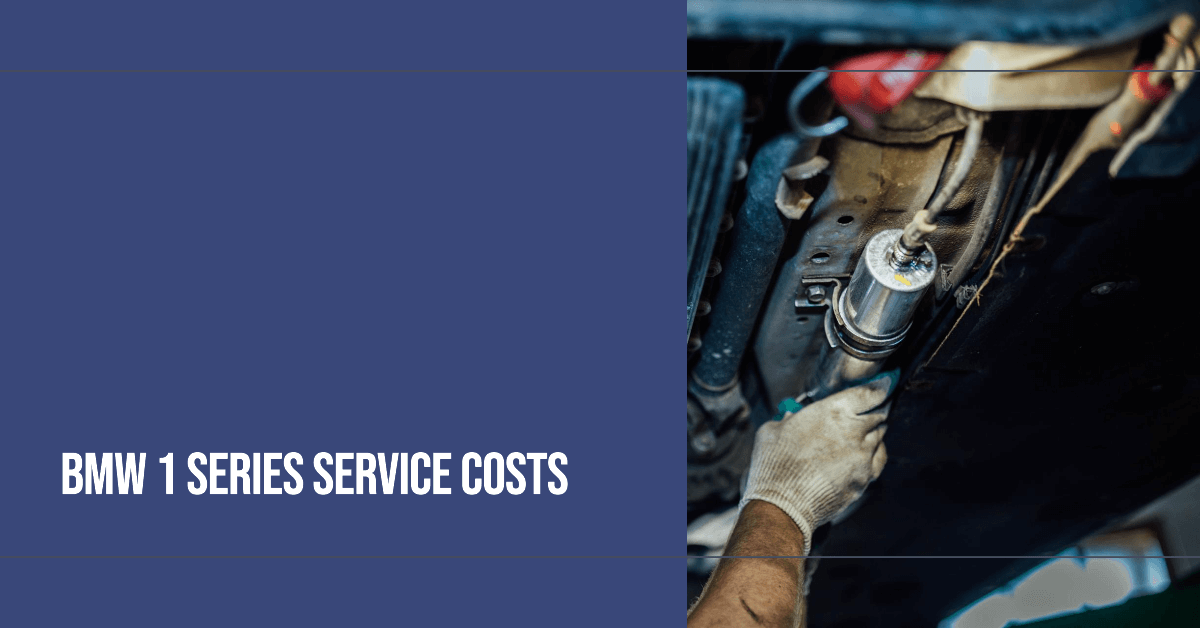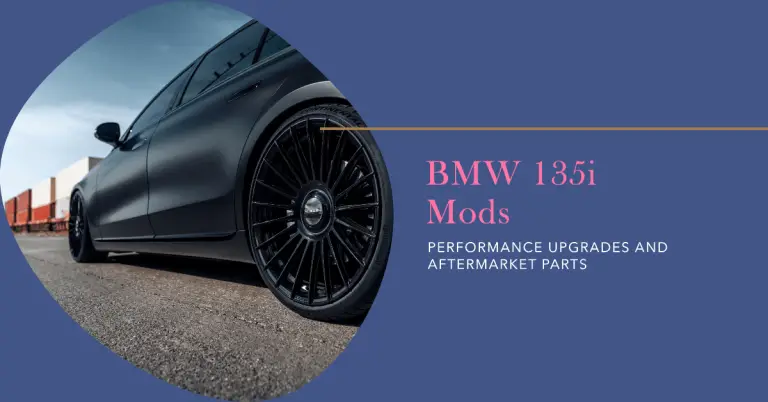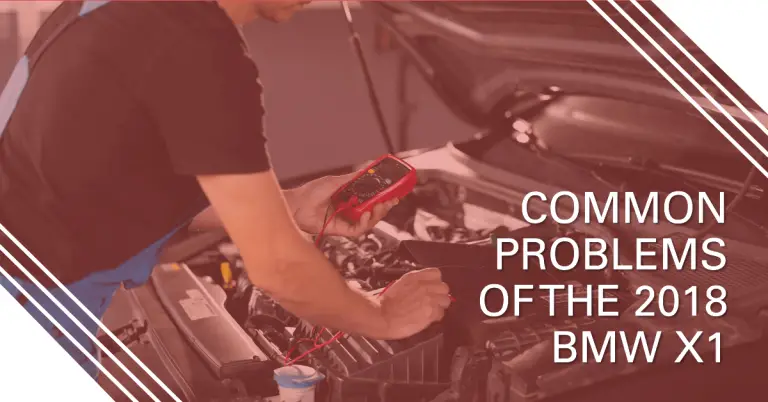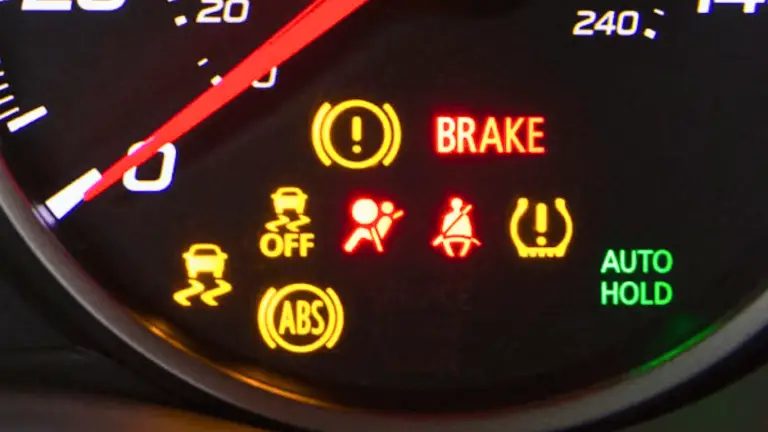BMW 1 Series Service Costs: A Comprehensive Guide
Owning a BMW 1 Series can be a rewarding experience. These sporty, fun-to-drive compact cars have excellent performance and handling that make everyday driving enjoyable. However, BMWs do come with higher maintenance costs than non-luxury brands. If you’re considering a 1 Series, it’s important to understand what type of maintenance is required and how much it will cost over the long run.
So how much does it really cost to service and maintain a BMW 1 Series? On average, plan to budget approximately $400 for routine maintenance visits such as oil changes and inspections at the dealership. While basic services may run $150-$250, bigger 60,000 and 120,000 mile major services often land in the $400-$700 range. Costs ultimately depend on your BMW’s model, year, mileage, location, and service provider.
In this comprehensive guide, we’ll break down everything you need to know about maintaining your 1 Series, including:
- Recommended factory maintenance schedules and intervals
- Itemized costs for routine maintenance and major repairs
- DIY maintenance tips to save money
- Factors that influence total maintenance costs
- Strategies to minimize BMW 1 Series service costs
Gaining a clear understanding of maintenance requirements and costs will help you make an informed decision if a 1 Series is the right car for your budget long-term. Let’s get started!
Overview of BMW 1 Series Service Costs
First, it helps to understand what goes into the total cost of maintaining your 1 Series. Service needs can be divided into two main categories:
Routine maintenance consists of periodic services like oil changes, inspections, fluid checks and changes, tire rotations, software updates, and minor adjustments. These are services recommended at specific mileage or time intervals by BMW to keep your car running well and prevent major issues down the road. For the 1 Series, expect routine maintenance roughly every 10,000 miles or once a year.
Repairs involve replacing worn or damaged parts like brake pads, spark plugs, shocks and struts, batteries, belts, and hoses. As vehicles age and accumulate miles, parts simply wear out and need to be swapped for new ones to avoid performance issues or breakdowns. Repairs may also be needed to fix unexpected problems.
Both routine service and repairs are essential to keeping your 1 Series in good operating condition. But what does this type of maintenance actually cost for the 1 Series?
Typical Maintenance Costs for a BMW 1 Series
Maintenance costs for any car can vary substantially based on factors like location, service provider, your BMW’s age and driving habits. However, here are some ballpark figures for average costs on a BMW 1 Series:
- Oil change service – $150-$250
- Routine inspection visit – $200-$400
- Major 30k, 60k, 90k service – $400-$700
- Brake pad replacement – $300-$450
- Spark plug replacement – $250-$400
- Battery replacement – $200-$400
- Timing belt replacement – $1,000-$1,200
- Suspension shocks or struts – $650-$950
Keep in mind that owning a BMW will generally cost more for both routine and major services compared to non-luxury vehicles. The specialized expertise required to service BMWs in addition to using original BMW or OEM parts results in higher labor rates and parts costs. However, there are ways to control costs which we’ll get to shortly.
First, let’s look at what a factory recommended maintenance schedule involves for the 1 Series.
BMW 1 Series Maintenance Schedule
To keep your BMW running at peak performance, following the factory prescribed maintenance schedule is important. Here are the standard service intervals recommended by BMW for 1 Series models:
Oil Changes
- Every 10,000 miles or 1 year, whichever comes first
Brake Fluid Flush
- Every 2 years
Coolant Flush
- Every 4 years
Spark Plugs
- Replacement at 60,000 miles
Transmission Fluid Change
- Every 60,000 miles
Air Filter
- Replacement every 20,000 miles or 2 years
Fuel Filter
- Replacement every 40,000 miles or 4 years
Front & Rear Brakes
- Inspection every 10,000 miles. Pad replacement as needed.
Tires
- Rotation every 10,000 miles. Replacement as needed.
Steering & Suspension
- Inspection every 10,000 miles. Replacement as needed.
Drivetrain
- Fluid top offs, inspection and software updates every 10,000 miles.
In addition to these routine service intervals, BMW groups maintenance into several packages at major mileage intervals:
Oil service – Every 10,000 miles or 1 year
Includes oil & filter change, checks of fluids and components. Around $150-$250.
Inspection I – Every 20,000 miles or 2 years
Includes oil service plus comprehensive inspection and software updates. Around $200-$400.
Inspection II – Every 60,000 miles or 6 years
Includes oil service, major inspection, spark plug replacement, transmission service, and more. Around $400-$700.
Inspection III – Every 120,000 miles or 12 years
Similar to Inspection II but even more comprehensive for higher mileage cars. Costs $400-$700+.
As you can see, BMW has very prescriptive guidelines for servicing based on both time and mileage intervals. While you can safely stretch some services like oil changes a bit past 10k if needed, sticking closely to BMW’s recommendations will minimize wear and keep your 1 Series running reliably.
Now let’s look at some of the specific repair costs you can expect with BMW 1 Series ownership.
Itemized BMW 1 Series Repair Costs
In addition to periodic maintenance visits, repairs are an inevitable part of operating an automobile long term. Here are some typical repair costs for the BMW 1 Series:
Brake pad replacement – $300 to $450
Brake pads wear down over time and need replacement every 30,000-50,000 miles. BMW brake pads cost more than economy brands.
New tires – $600 to $1,000
Quality tires designed to handle the powerful performance of a BMW are more expensive. Expect to pay $150+ per tire.
Battery replacement – $200 to $400
BMW batteries usually last 4-6 years. The specialized AGM batteries used in BMWs are pricier than standard automotive batteries.
Spark plug replacement – $250 to $400
Required at 60,000 mile intervals. BMW specialized spark plugs are costlier than basic plugs. Labor adds to the total cost.
Timing belt replacement – $1,000 to $1,200
Critical service to perform at 110,000 mile or 10 year intervals for 4-cylinder 1 Series models. Significant labor costs involved.
Water pump – $450 to $650
Often replaced as preventive maintenance when the timing belt is changed. Uses original BMW or OE water pump.
Suspension shocks or struts – $650 to $950
Wear items that may need replacement as early as 50,000 miles on a 1 Series. OEM BMW parts advised.
AC Evaporator – $1000 to $1500
If the AC fails due to a faulty evaporator, this is an expensive repair. High labor costs to access system.
Thermostat – $300 to $500
Important cooling system component that may fail and require replacement on higher mileage 1 Series.
Window regulator – $250 to $600
Power window regulator motors wear out over time. Labor intensive repair to access door components.
Headlight assembly – $900 to $1700
If headlights stop working, the entire assembly may need replacement. Costly on BMWs.
Engine mounts – $400 to $700
Wear items that dampen engine vibration/movement. Labor adds cost for removal and replacement.
Alternator – $450 to $850
This key charging system component has a high replacement cost for BMW models.
Starter – $500 to $1000**
Starters have a finite lifespan and will eventually need replacement. Higher BMW labor rates apply.
These are just some examples of common repairs and what they cost for the BMW 1 Series. Parts and labor prices are steep due to the specialized nature of servicing European luxury vehicles. Having some transmission issues? Expect really high repair bills.
Tips to Minimize BMW 1 Series Maintenance Costs
While it’s inevitable that servicing and maintaining your 1 Series will require greater expenditures than an economy car, you’re not necessarily at the mercy of whatever a BMW dealer charges. Here are some smart strategies you can use to minimize maintenance costs without sacrificing quality:
1. Find a reputable independent mechanic
Franchise dealerships often charge higher hourly rates and markup on parts. An experienced independent shop can offer big savings on labor for routine services and repairs. Just be sure they are familiar with BMWs.
2. Use OE or OEM parts instead of dealer parts
Genuine BMW parts are very pricey. Quality aftermarket OE or OEM components can cut parts costs in half without compromising fit and function.
3. Learn to DIY basic maintenance
Doing your own oil changes, brake pads, batteries, wipers, filters and bulbs can save hundreds per year in labor costs. Just know your limits.
4. Shop around for quotes
Don’t just automatically go to the dealer. Get quotes from several mechanics to compare pricing on major repairs.
5. Look for BMW service discounts
Dealers sometimes offer multi-point inspections for 1 Series models at a discount to attract service business. Check for coupons too.
6. Extend intervals cautiously
It’s OK to go slightly beyond BMW’s recommendations for some fluids and filters, but don’t delay critical services until problems arise.
7. Fix small issues immediately
Addressing minor leaks, strange noises, and problems promptly reduces the risk of cascading into major repairs down the road.
8. Maintain proper documentation
Keep detailed records of all maintenance and services performed. This protects resale value if you sell.
Apply some of these tips and you can likely reduce your total 1 Series maintenance expenditure by 20% or more over the years. Without due diligence controlling costs, some BMW owners pay $5,000+ in annual upkeep expenses. But with smart strategies, you can maximize affordability without compromising safety and reliability.
Factors That Impact 1 Series Maintenance Costs
It’s important to note that your individual real-world service and repair costs may be higher or lower than these averages depending on certain factors:
Where you live – Costs are higher in areas with higher labor rates, taxes, business overhead, and regulation
Age and mileage – More repairs are needed as vehicles age and accumulate miles
Driving style – Aggressive driving accelerates wear and tear on components
Service provider – Dealers are generally most expensive, while independent shops offer lower rates
Use of OEM parts – Genuine BMW parts have the highest cost vs aftermarket components
Condition when purchased – Poorly maintained models generally require more repairs sooner
The best ways to get a sense of projected maintenance costs for a specific BMW 1 Series you’re considering are:
- Review the vehicle history report for service records
- Have a prepurchase inspection done to assess condition
- Talk to the current owner about reliability and costs
- Compare quotes from different mechanics on expected repairs
This will give you a realistic idea of expenses to budget for tires, brakes, batteries and other needs in the near future.
While maintenance demands are higher, rest assured that diligent servicing is what enables a BMW 1 Series to deliver exceptional performance, handling and driving enjoyment for years and high mileage when properly cared for.
Is BMW 1 Series Ownership Worth the Maintenance Costs?
At the end of the day, increased maintenance expenditures are an inherent part of luxury vehicle ownership. But many 1 Series drivers feel the pure driving pleasure and status of owning a BMW offsets the higher costs of properly maintaining these ultimate driving machines.
If you are someone who values a fine luxury automobile, is willing to invest in proper upkeep, and plans to own your 1 Series for the long haul, the somewhat higher costs are usually a price savvy owners are willing to pay.
However, it’s definitely not a vehicle you should purchase if you’re looking for an inexpensive maintenance experience comparable to an economy car. As with any used vehicle purchase, be sure to run a vehicle history report to understand the maintenance history and have a trusted mechanic thoroughly inspect before buying.
By educating yourself upfront on expected costs for service, repairs and following the factory prescribed maintenance schedule, your BMW 1 Series will deliver many years and miles of exhilarating performance and driving enjoyment that few vehicles can match.
Conclusion:Evaluate Long Term Costs Before Buying a 1 Series
BMW 1 Series deliver an unrivaled driving experience that makes owning one a joy for enthusiasts. But they do come with higher than average maintenance costs.
To make an informed purchase decision, be realistic about routine service and repair costs. Review the factory maintenance schedule and budget approximately $400 per year for oil changes and inspections. Be prepared for steeper bills for major 60,000+ services and inevtiable repairs.
With some diligence finding affordable service options, you can minimize expenses while still properly maintaining your 1 Series. Partner with qualified mechanics familiar with BMWs, use OEM parts, learn basic DIY skills, and address issues promptly.
While not the most economical vehicles in long term ownership costs, attentive maintenance helps justify the BMW 1 Series higher purchase price by preserving performance, safety and strong resale value. For those who appreciate superb driving dynamics, the extra expenditures are often money well spent.





